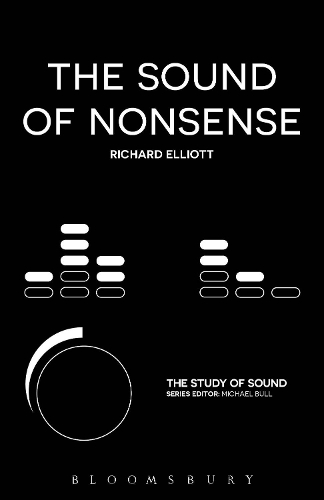
The Sound of Nonsense
(Hardback)
Available Formats
Publishing Details
The Sound of Nonsense
By (Author) Dr. Richard Elliott
Bloomsbury Publishing PLC
Bloomsbury Academic USA
28th December 2017
United States
Classifications
Tertiary Education
Non Fiction
Media studies
Literary studies: poetry and poets
781.23
Physical Properties
Hardback
154
Width 140mm, Height 216mm
331g
Description
In The Sound of Nonsense, Richard Elliott highlights the importance of sound in understanding the nonsense of writers such as Lewis Carroll, Edward Lear, James Joyce and Mervyn Peake, before connecting this noisy writing to works which engage more directly with sound, including sound poetry, experimental music and pop. By emphasising sonic factors, Elliott makes new and fascinating connections between a wide range of artistic examples to ultimately build a case for the importance of sound in creating, maintaining and disrupting meaning.
Reviews
Taking a literary and musical path Lear and Carroll, literary modernism, translation, sonic art and pop records - Richard Elliott provides a sensible view of the nonsensical. Formed of much wordy noise, copious theory lightly handled, and palpable fondness in the writing, The Sound of Nonsense is a quietly provocative manifesto on nonsenses behalf. * Dai Griffiths, Senior Lecturer in Music, Oxford Brookes University, UK *
Elliott's Sound of Nonsense is a deliciously noisy book, a lively sonic romp that enjoins its readers to be enjoyed aloud. It chants and enchants us through realms of utterance shaped by astonishingly diverse artists including Lewis Carroll and Hugo Ball, James Joyce and Bob Dylan, Velimir Khlebnikov and Jaap Blonk. Their often only just speakable tones and textures of proto-lexical sounds lure us into that zaum wonderland Paul Schmidt calls "beyonsense". Elliott's masterful, thoroughly useful scholarship is offset by his contagious delight in his subject. Echoes of poetry freed from semantic shackles, of scat, beatbox, and doowop, bounce off the page to activate our readership via the "mixing desk of the ear". This invigorating Sound of Nonsense makes sound sense. * Sally Jane Norman, Director of the New Zealand School of Music/Te Koki - Victoria University Wellington, Aotearoa/New Zealand *
Theres no sense like nonsense, and heres a no-nonsense survey of it, from the simply silly to the profoundly pointeda guide to the art of nonsense across cultural levels, at once scholarly and entertaining, original and enlightening. * Paul Dutton, Writer and Oral Sound Artist, Canada *
Richard Elliotts The Sound of Nonsense is an exhilarating, well-informed, and very well written book. Elliott shows an easy familiarity with sources in many languages, including Russian. His principal theoretical assertion is that nonsense occurs in the moment when sense-making is forced into code-switching; he also offers the suggestion that nonsense as such supports sociality. Although the book appears to be principally about popular culture, it works closely with sound poetry and with recent experimental styles in modern vocal performance, revealing how they blend with the popular forms. It is a work that is rewarding not only for its ideas, but for its searching analysis of individual songs and unusual word-sound combinations. A satisfying book. * Irving Massey, Emeritus Professor of English and Comparative Literature, University at Buffalo, USA *
A cray and splendiferous example of how sound studies and its necessarily interdisciplinary modes of analysis will lead the way into new intellectual territory. Ranging widely from Lewis Carroll, Hugo Ball, and Gertrude Stein to John Cage, Bob Dylan, and Rahzel, The Sound of Nonsense is much more than a sonic intervention into nonsense scholarship, it is a bridge between music and literature that will open new lines of critical inquiry into the social life of words. Richard Elliott puts the ram in the rama lama ding dong. * J. Griffith Rollefson, author of Flip the Script *
Author Bio
Richard Elliott is Senior Lecturer in Music at Newcastle University, UK.
